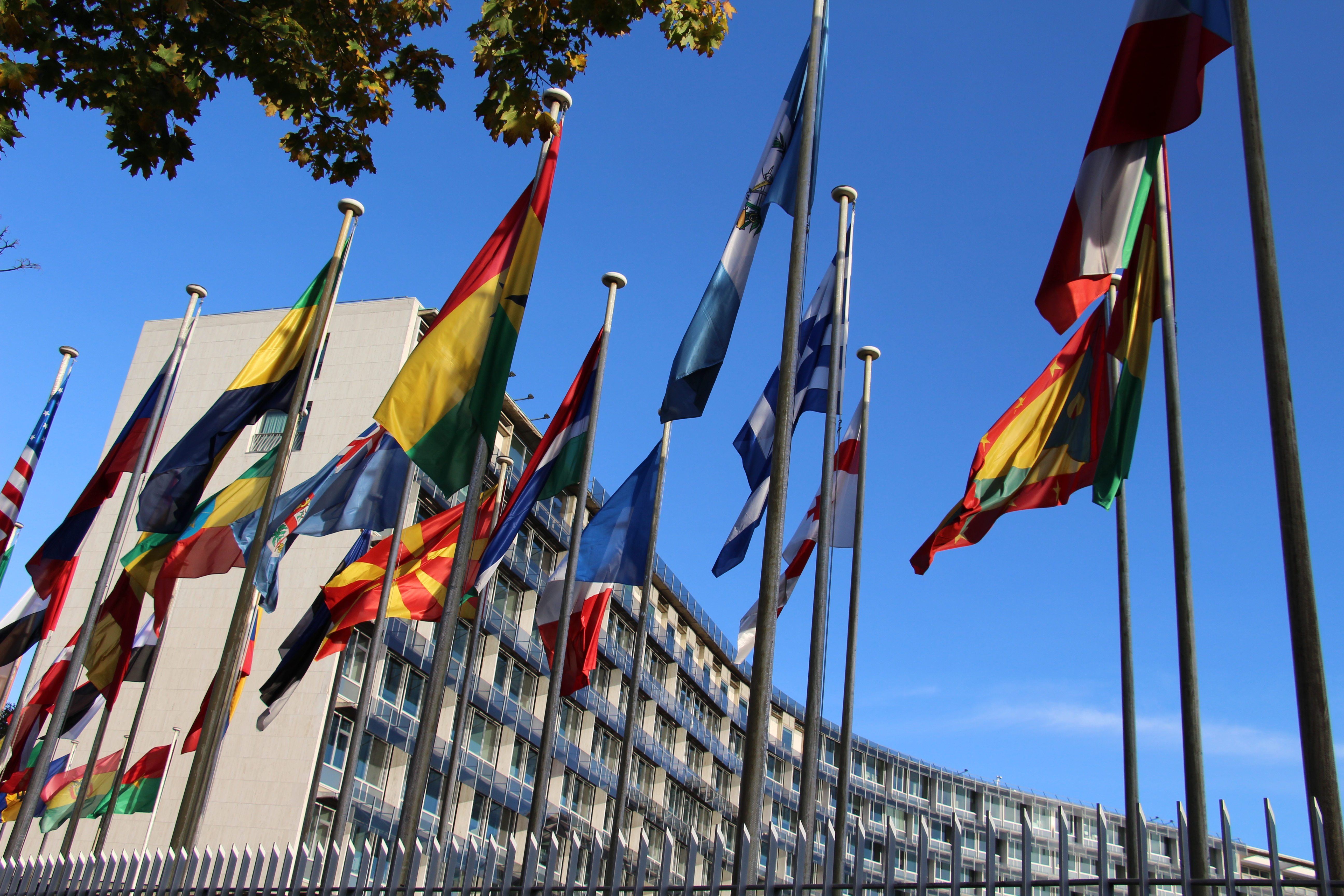The Blessing Hidden in Trump’s UNESCO Withdrawal
Editor’s Note: The Trump administration is suspicious of multilateralism in general, so it is not surprising that it is skeptical of the United Nations. The administration's decision to withdraw from UNESCO reflects this skepticism, but it has also drawn criticism at home and abroad. However, Indiana University's David Bosco, while opposing the decision, finds a silver lining. Because UNESCO is not terribly effective, allowing Trump and others to vent their anger at UNESCO while preserving other ties to the United Nations will help preserve U.N.

Published by The Lawfare Institute
in Cooperation With

Editor’s Note: The Trump administration is suspicious of multilateralism in general, so it is not surprising that it is skeptical of the United Nations. The administration's decision to withdraw from UNESCO reflects this skepticism, but it has also drawn criticism at home and abroad. However, Indiana University's David Bosco, while opposing the decision, finds a silver lining. Because UNESCO is not terribly effective, allowing Trump and others to vent their anger at UNESCO while preserving other ties to the United Nations will help preserve U.N. agencies whose activities are far more important to the United States.
***
Last week, the Trump administration announced that the United States would pull out of the U.N. Educational, Scientific and Cultural Organization (UNESCO), citing in particular its history of anti-Israel resolutions. The move generated predictable responses. Republican lawmakers and senior officials in Israel welcomed the decision. Others worried that it was the latest manifestation of the Trump administration’s desire to undo the multilateral architecture and retreat from U.S. leadership.
In this debate, almost no one argues that UNESCO is without problems, or even that it is a particularly effective organization. Instead, the differences boil down to the perennial question of whether reforming a flawed institution from the inside is a better strategy than pulling out. On that question, I am squarely in the work-from-the-inside camp; engaged liberal democracies can improve the performance of even frustrating multilateral organizations. In an important sign of progress, UNESCO’s board last week selected the former French Culture Minister Audrey Azoulay, who is Jewish and has family in Israel, to be the organization’s new director general.
But a more productive way to think about the UNESCO decision may be in terms of mitigating the damage the Trump administration is doing to worthwhile multilateral projects. Considered in that light, the UNESCO departure may be a hidden blessing.
Trump’s core conviction about multilateralism is out of step with Republican orthodoxy in some areas ... but it meshes nicely with longstanding GOP views about the United Nations.
Some context for the administration’s decision is important, because it had several distinct roots. First, there is the president’s own deep conviction—going back decades—that multilateral treaties and global organizations are a bad deal for the United States, not least financially. U.S. Ambassador to the United Nations Nikki Haley channeled some of that resentment in her statement explaining the decision. American taxpayers, she insisted, “should no longer be on the hook to pay for policies that are hostile to our values and make a mockery of justice and common sense.”
Trump’s core conviction about multilateralism is out of step with Republican orthodoxy in some areas, particularly NATO and international trade, but it meshes nicely with longstanding GOP views about the United Nations. Since at least the early 1970s, Republicans have been sour on the United Nations. That hostility blends a pinch of traditional conservative isolationism with a strong aversion to the leftist, anti-capitalist direction the United Nations took as decolonization swelled its ranks in the 1960s and 1970s. That shift cost the United States its reliable majority in the General Assembly and many other U.N. bodies.
The decision to abandon UNESCO also had the imprimatur of Ronald Reagan. In 1983, his administration announced its decision to pull out of the organization, citing its politicization and anti-American activities. The U.S. bill of particulars at that time focused much more on the organization’s perceived ideological tilt than its attacks on Israel, but the precedent is a valuable one for a Republican president, and Haley made sure to cite it. (The United Kingdom, under the leadership of Margaret Thatcher, followed the United States to the exits, something unlikely in the current climate.)
UNESCO’s membership exacerbated the already tense relationship with the U.S. administration with several recent moves. In July, its World Heritage Committee voted to designate the West Bank city of Hebron as a world heritage site in danger. In its decision, the committee cited Israeli military occupation and specific security measures by Israel as part of the danger facing the city and several historic sites. The Hebron resolution followed a series of resolutions critical of Israel’s activities in East Jerusalem, which described Israel as the “occupying power.”
Bean counting may also have played a role. Pushed by Congress, the Obama administration acquiesced to a budget that cut funding to the organization after it admitted Palestine as a member state in 2011. Since that time, the United States has been piling up arrears to the organization, and Secretary of State Rex Tillerson reportedly wanted to stop the accumulation of IOUs.
Given all this, UNESCO was an irresistible target for an administration primed to strike an easy blow against biased, corrupt, and expensive globalism. But for all the controversy it has stirred, the move is not likely to have much impact on the U.N. system, which should count itself lucky if it emerges from a Trump term with UNESCO as the primary target.
First, it’s unlikely the American decision will have a major impact on UNESCO’s operations; the organization has already adjusted to the loss of U.S. funding by making cuts and reforms. It’s true that some of the organization may now tilt even more against Israel and Washington. As Crystal Nix-Hines has argued, the absence of an American voice on the organization’s executive board may clear the way for measures that the United States would have blocked. But there’s little UNESCO can do that is a substantial threat.
And whatever the impact on UNESCO itself, that organization is less operationally active, less important, and less effective than several other parts of the U.N. system. The U.N. refugee agency, for example, provides critical services in many crises displacing populations around the world. The World Food Program stockpiles and delivers food to humanitarian crisis zones. UNICEF advances vaccination and HIV treatment. By contrast, UNESCO has only a smattering of significant operations. And there’s evidence it doesn’t perform those tasks particularly well; a recent British government review of multilateral organizations rated its performance as “weak.”
Rhetoric notwithstanding, the U.N. thus far has mostly endured the Trump ascendency without grievous fractures in the relationship with its most powerful member.
The U.N. system of having multiple agencies with independent budgets creates all sorts of administrative redundancies and bureaucratic complexities. But it also has the great virtue of allowing members to express their displeasure at parts of the system without abandoning it in its entirety.
Venting its spleen through UNESCO withdrawal may give the Trump administration more room to continue accommodating itself to the reality that the U.N. system as a whole usually advances American interests. Rhetoric notwithstanding, the U.N. thus far has mostly endured the Trump ascendency without grievous fractures in the relationship with its most powerful member. For all the administration’s talk of major budget cuts, it is not at all clear those will materialize. And Washington has taken a moderate approach to dealing with U.N. peacekeeping operations; the administration has pressed for reform and downsizing but has voted to reauthorize several missions and appears likely to continue this pattern. It’s still not clear whether the United States will withdraw from the U.N. Human Rights Council, and it has continued to engage with its processes in Geneva. An exchange of UNESCO withdrawal for continued engagement with the Council would be a reasonable one.





